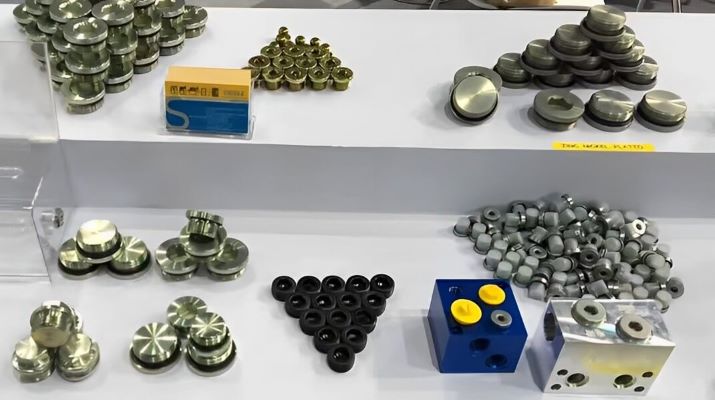When it comes to hydraulic systems, the devil is in the details, and even the smallest components play a crucial role in maintaining the integrity and functionality of the system. Hydraulic pipe plugs are one such component that might seem insignificant, but their importance cannot be underestimated.
In this comprehensive guide, we will delve into the world of hydraulic pipe plugs, addressing questions such as “What is a hydraulic plug?” and “Can you plug a hydraulic line?” We want you to have a thorough understanding of these plugs and how they function in hydraulic systems.
What is a Hydraulic Plug?
A hydraulic plug is a vital component used in hydraulic systems to seal off hydraulic lines or ports. It acts as a barrier to prevent hydraulic fluid from leaking out of the system while also preventing contaminants from entering. These plugs are often designed to withstand high pressures, ensuring that they maintain their seal even under demanding operating conditions.
Key Characteristics of Hydraulic Plugs
Materials: Hydraulic plugs are commonly constructed from materials such as stainless steel, brass, or other corrosion-resistant materials. The choice of material depends on the specific application and the compatibility with the hydraulic fluid being used.
Design: Hydraulic plugs come in various designs, including hex-head plugs, flush-face plugs, and magnetic plugs. Each design serves a specific purpose, such as allowing for easy access or capturing metallic debris within the hydraulic system.
Thread Type: The threading of a hydraulic plug is crucial for ensuring a secure and leak-free connection. Common thread types include NPT (National Pipe Taper), BSPP (British Standard Pipe Parallel), and Metric threads.
Can You Plug a Hydraulic Line?
The question of whether you can plug a hydraulic line is a valid one, and the answer lies in the design and function of hydraulic pipe plugs. Yes, you can plug a hydraulic line, but it should be done with careful consideration of the system’s design, fluid dynamics, and safety requirements.
When to Plug a Hydraulic Line
Maintenance: Plugging a hydraulic line during maintenance prevents fluid leakage and contamination, allowing for safe and efficient maintenance procedures.
System Modifications: When making modifications to a hydraulic system, such as adding new components or rerouting lines, plugging existing lines might be necessary to maintain the system’s integrity.
System Testing: During system testing and troubleshooting, plugging certain lines can help isolate specific sections for analysis without affecting the entire system.
Considerations When Plugging a Hydraulic Line
Pressure Rating: Ensure that the chosen hydraulic plug can handle the system’s operating pressure without causing leaks or failures.
Fluid Compatibility: The plug’s material should be compatible with the hydraulic fluid to prevent corrosion or degradation.
Proper Installation: Proper installation of hydraulic plugs is crucial to maintain a leak-free seal. Follow manufacturer guidelines and torque specifications.
Choosing the Right Hydraulic Plug
Selecting the appropriate hydraulic plug requires a clear understanding of the system’s requirements, operating conditions, and compatibility factors. Factors to consider include:
Size: Choose a plug size that matches the hydraulic line’s diameter to ensure a proper fit and seal.
Materials: Consider the type of hydraulic fluid, temperature, and environmental conditions when selecting a material.
Thread Type: Opt for a thread type that matches the existing system components to ensure compatibility.
Conclusion
Hydraulic pipe plugs are the unsung heroes of hydraulic systems, playing a vital role in preventing leaks, contamination, and maintaining system efficiency. Whether you need to seal off lines during maintenance, modifications, or testing, hydraulic plugs provide a reliable solution. By understanding their characteristics, functions, and proper installation techniques, you can ensure the smooth operation and longevity of your hydraulic system.
Post time: Aug-31-2023


